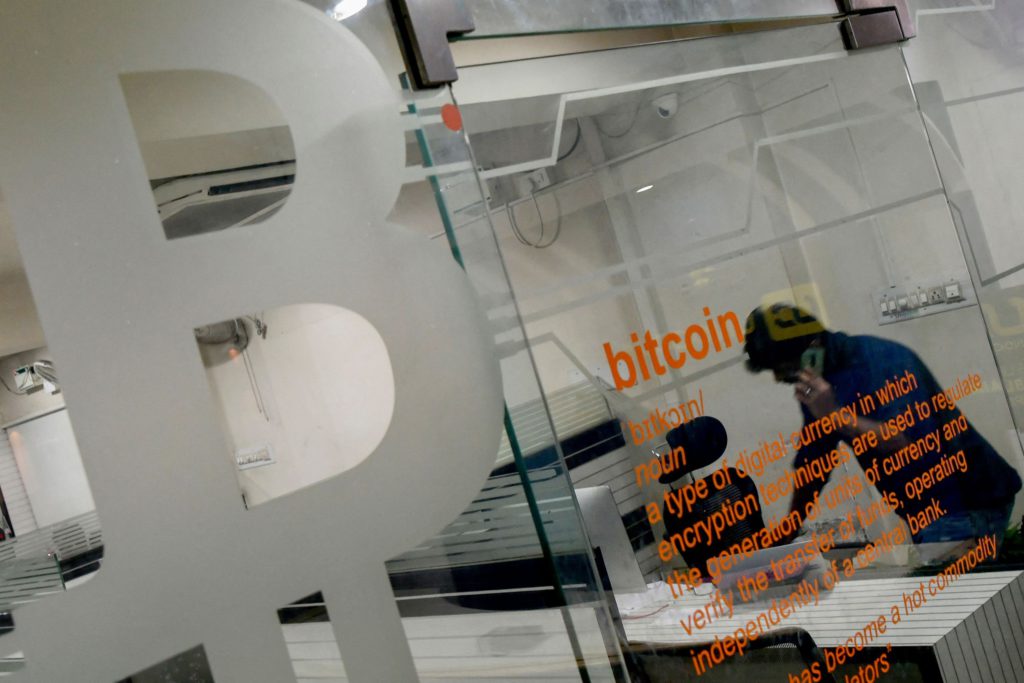(Bloomberg) — When India’s government unveiled a plan to tax crypto assets in February, it was the 30% rate on income from digital-asset investments that grabbed headlines. But it’s a different levy that has the industry warning of a potentially destabilizing liquidity crunch.
Along with the capital gains charge, the finance ministry announced a 1% tax deductible at source, or TDS, on all digital-asset transfers above a certain size, starting July 1. No other country imposes such a tax on crypto, according to Anoush Bhasin, founder of crypto asset tax advisory firm Quagmire Consulting.
Crypto-exchange executives, lawyers and tax analysts warn that the TDS will suck liquidity out of the market by forcing high-frequency traders to dramatically curtail their trading. Combined with the government’s decision not to permit offsetting of trading losses in digital assets, it threatens to accelerate an exodus of crypto companies and workers from India, they say.
India Bans Offsetting Loss on One Crypto With Gain From Another
Nischal Shetty, chief executive officer of WazirX, India’s biggest crypto exchange, called the TDS “the worst-case scenario for the industry.”
“There will be no liquidity left in the markets,” said Manhar Garegrat, executive director of policy at crypto exchange CoinDCX. “Trades placed by buyers will not get executed as efficiently as they do today, and such inefficiency will eventually dwindle the whole ecosystem.”
Bleeding Talent
The tax package and the ban on offsetting losses — which only applies to crypto — represents the latest salvo by a government that still hasn’t clearly stated that it will allow cryptocurrencies. India, with an estimated 15 million active crypto users, has been stuck in regulatory limbo since the Supreme Court in 2020 overturned a central bank directive banning regulated entities from working with digital-assets companies.
Sandeep Nailwal, the co-founder of Indian blockchain startup Polygon, warned this month that thousands of developers, investors and entrepreneurs are decamping for more crypto-friendly destinations as a result of the uncertainty.
Crypto Brain Drain Is ‘Crazy’ in India, Polygon Co-Founder Says
When the government first unveiled the crypto levies, the announcement was met with relief because it was interpreted as a sign that there wouldn’t be an outright ban on cryptocurrency trading. That changed as the industry digested the details of the TDS.
Under the new regime, the buyer of a crypto asset must deduct the 1% TDS on behalf of the seller if a transaction exceeds 10,000 rupees (about $132). Smaller trades would also be taxed if they top a cumulative 50,000 rupees in a financial year, according to Bhasin.
Investors will be entitled to a refund if the total amount set aside for TDS during a fiscal year exceeds their overall tax liability for the period.
Capital Gets Choked
When done over a centralized exchange, it’s the bourse’s responsibility to deduct the TDS for a trade, Bhasin said. On a decentralized trading platform where the buyer and seller interact without an intermediary, people typically trade anonymously, which makes collecting TDS complicated.
While a capital gains tax reduces the appeal of crypto for investors, the TDS poses a threat to the very underpinnings of the market, critics say. India doesn’t impose such a levy on stock trading.
The typical high-frequency trader could see 60% of their capital blocked for TDS payments after just 100 trades, estimates Garegrat, who is also a member of India’s Blockchain and Crypto Assets Council.
“The way the tax has been worked out will lead to people moving out of the country,” said Dinesh Kanabar, CEO of Dhruva Advisors, a tax and regulatory advisory firm.
Speaking in the Lower House of Parliament on March 25, Finance Minister Nirmala Sitharaman said the TDS will allow the government to track transactions and doesn’t represent an additional levy. But executives and experts counter that if that’s the sole intention, it could have been accomplished just as well with a much smaller rate without disrupting trading.
Like with decentralized exchanges, enforcing the TDS system will be almost impossible when it comes to offshore trading platforms, Garegrat said. So the tax will mainly serve to push trading off the locally-based exchanges over which the Indian government has the most visibility, he added.
The system gets even more onerous for traders in crypto pairs, like Bitcoin/Ether, according to Quagmire’s Bhasin. That’s because each trade involves two separate transactions — for example, buying Bitcoin from one counterparty, then selling it and purchasing Ether from another.
“At one stage you will liable to lose 1% because you are selling BTC and at the next step you will be liable to deduct 1% TDS because you are buying ETH from another seller,” he said. “The accounting will be super crazy for this.”
More stories like this are available on bloomberg.com
©2022 Bloomberg L.P.











